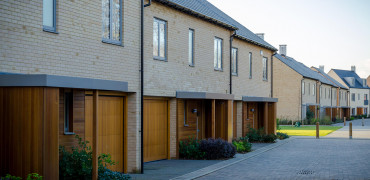For those unfortunate enough to find themselves living in fuel poverty, the stresses caused by not being able to afford heating and subsequently falling into debt is severe. A survey undertaken by charitable organisation ‘Save the Children’ recently found that almost half of the parents from the lowest income families actually have to consider whether to heat or eat, sometimes cutting back on food in order to pay their energy bills.
This is obviously unacceptable and we all have a moral obligation to do everything we can to end fuel poverty as soon as possible. Unfortunately, fuel poor homes often have to also make compromises when it comes to maintaining their property for the sake of heating – these compromises are proving expensive for housing associations and social housing landlords, who then have to invest in remedial repairs rather than tackling fuel poverty itself at the source.
Long-term damage
Fuel poverty is a perpetual annual cycle of misery for those affected. In a bid to try and struggle through the winter many tenants result to either using their central heating sporadically, or using small space heaters instead.
Unfortunately, this often leads to high levels of condensation within a household, where small sections of the house are warm and the surrounding rooms are cold.
Where cold air meets warm surfaces is the perfect environment for mould and damp to flourish, leaving poor health implications and damaged property in its wake; plaster soon crumbles and requires replacement after being subjected to excess moisture for long periods of time, furnishings can be ruined by mould. There are so many consequences to an inefficient home. Indeed, if left unchecked for long enough, damp can actually damage the structural integrity of a house. The house can then be condemned until it is fit once more to be inhabited.
The financial repercussions of fuel poverty actually extend far beyond just that of the affected tenants household, into society as a whole - from avoidable winter burden on the NHS to increased sick days at school and work. Fuel poverty puts enormous pressure on hospitals and doctors surgeries across the country. This is not only because of the physical and mental impact of living in a cold home, but also because it can actually extend the period of time a vulnerable patient is kept in hospital, with some actually not being discharged until their home is renovated to habitable state once again.
How fuel pumps can lower maintenance costs
Repairing damage done to housing stock by inadequate heating practices is a quick and immediately visible solution, but it doesn’t tackle the overall problem of inefficiency and the high maintenance costs involved in it.
Air source heat pumps can immediately help alleviate fuel poverty. By extracting renewable energy from outdoor air, the system maximises the energy provided to the household and can offer a reduction in run costs; studies suggest by up to as much as 10% of the UK national average. In addition to helping the tenant reduce their heating bills, the renewable heat from the heat pump can qualify for quarterly RHI payments for the landlord, which offsets the cost of the heat pump installation initially and then provides funds for further upgrades to property and heating going forward.
Because heat pumps are best suited to more continuous running, they provide a more constant level of comfort for vulnerable residents. Heat pumps allow tenants to heat all of their homes cost effectively, rather than just one or two rooms, which is better for the property also. HAs are therefore safe in the knowledge that they are taking care of their assets as well as their tenants, providing warm homes and reducing unnecessary and avoidable expense.
Joe Bradbury is Assistant Editor of Housing Association Magazine.
If you have any questions about this article or want to know more, please email us. We will contact the author and will get back to you as soon as we can.
If you would like more information of air source heat pumps, including the Mitsubishi Electric Ecodan range please visit https://ecodanerp.co.uk



